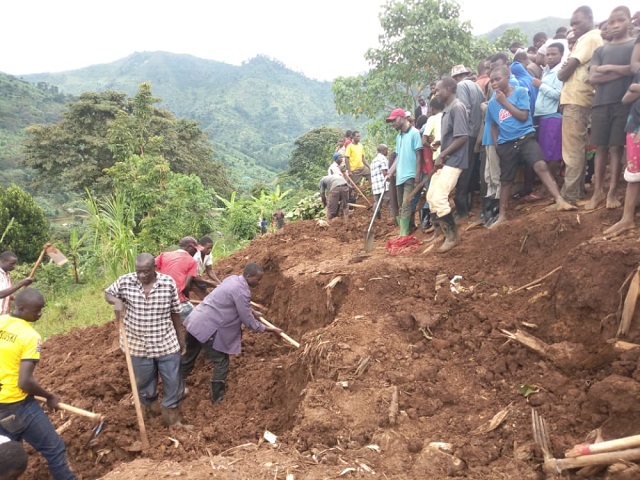
Hopes dashed
One of those tasked to carry the voice of the vulnerable Mt. Elgon communities to the COP26 summit was Jennipher Sambazi, from Masola village in Gombe Parish, Lusha Sub-County in Bulambuli District. Sambazi who is the chairperson of Bunabude Organic Produce Cooperative Society Ltd which has over 300 farmers was sponsored to the Glasgow conference by the Welsh government.
“I had plenty to say during the conference,” she told The Independent.
“I presented in the Green Zone,” she proudly said, “I attended six other fringe events in the Blue and Green Zones and other community events in Glasgow.”
She said she wanted to ensure that the US$ 100 billion climate fund goes to those that need it most; like farmer networks and the fair-trade system. The farmer networks, Sambazi said are able to act quickly, efficiently and effectively and provide mitigation activities to respond to the climate crisis in a valuable way.
Sambazi’s Bunabude Organic Produce Cooperative Society Ltd contributes to the thousands of coffee bags that are bulked across 11 primary societies in the Mt. Elgon area before being shipped to Wales where the Mt.Elgon communities have a partnership to do “fair trade” in organic products. The union comprises 3000 farmers who grow Arabica coffee, trees, and keep bees for honey. But it is the fair trade coffee which is most lucrative.
“I wanted to demonstrate how Ugandan farmer communities are being affected by climate change and what they are doing to tackle the climate crisis and how they are well placed to receive support and capacity building,” Sambazi told The Independent.
Yet, when the COP26 meeting, which started on Oct.31 and rumbled on until Nov.13, ended; it was clear that discussions on how to find money to help poor countries where people like Sambazi and Nambale are struggling to cope with the impacts of climate change were not as straight forward.
Several streams of the negotiations centred on finance, with key battles on how to fund historically underfunded issues of loss, damage, and adaptation to climate change. Some big figures of the much needed cash were dropped during the conference; including the US$ 40 billion to support forest conservation in countries like Uganda.
For many expert watchers, the COP26 were not different from the past. Since they began in 1992, the negotiations have seen poor and vulnerable nations like Uganda try and fail to convince wealthier, carbon polluting countries to release billions of dollars in climate finance.
Emmanuel Tachie-Obeng, representing the Climate Vulnerable Forum, told Carbon Brief on the sidelines of the conference that he “believes that the money is there—they (just) don’t want to release it.
Mohammed Adow, the director of Power Shift Africa, noted in another press briefing that with countries failing to muster even US$100 billion per year, “how much can we trust that they are serious?”
“Demonstrating credibility on this issue was seen as an important issue,” he said.
But Michael Ssekaayi Mbogga, a lecturer at Makerere University’s Centre for Climate Change Research and Innovation told The Independent that money promised by the rich countries to countries like Uganda depends on many factors.
“It’s actually not an entitlement,” he said, “often times, it depends on what the vulnerable countries have to show before they get this money. So Uganda needs to put its act together to access the climate finance.”
He said countries like Kenya, Nigeria, and South Africa are now getting more money because the technocrats in these governments have in their ministries and departments convincing project proposals.
“There was a commitment of up to $40 billion every year for the developing countries to save their forests but does Uganda have the moral authority to claim this money when it is cutting down forests? If you behave well, you get a portion of this money.”
Onesmus Mugyenyi, the deputy executive director of the Advocates Coalition for Development and Environment (ACODE), a Kampala-based think tank told The Independent on Dec.03 that developing countries like Uganda “need to get realistic and understand that rich countries are confronted with their own challenges including climate change.”
“What we need to do as poor countries is to think of other innovative ways that don’t require a lot of money to adjust our way of life,” he said, “These are things that are not talked about at all; our consumption, the manner in which we handle things like polythene bags.”
“We are also saying you need to integrate climate change in every sector, programme and project you implement so that the resources at the national level, when they are being put to use, you are also addressing climate change. That is the only way we are going to manage climate change,” he said.
 The Independent Uganda: You get the Truth we Pay the Price
The Independent Uganda: You get the Truth we Pay the Price



